Zhenya Chaika
Residency Journals
At the invitation of the Golubitskoe Art Foundation Zhenya Chaika took part in the art residency and carried out research for her book Art Residencies and How to Cook Them studying the structure of the residency and its defining features, Zhenya put together a list of key ingredients and transformed her residency experience into a process of making lunch. Zhenya kept a journal to detail her stay at Golubitskoe.
1. Residency = Freedom, or Summer in a Yellow Suitcase
In the course of my 'residency life' I have worked with more than fifty residents (let's say fifty-five as I lost count afterwards) in different capacities, but I have never been a resident myself. A multitude of brief (no longer than 14-day long) trips don't count. Because, firstly, they were short, and secondly, they were usually so jam-packed that the main objective was to follow the programme and put all observations and contacts where they would be readily available.
The residency that I have picked out for myself features an unhurried pace and freedom, with ample room for improvisation, as well as being in line with the goal I set. I soon learn that getting ready to participate in a residency is no less exciting than awaiting the arrival of a resident.
One would think this should be an ordinary summer trip, an ordinary suitcase, an ordinary world where nothing can be forgotten anymore because the same things are sold in depressingly similar places. But the anxiety does not abate. Oddly, it manifests in the urge to put the house in order. As if this sudden obsession with tidiness would allow me to take it with me or at least convince it to not hold a grudge in view of the upcoming separation.
While packing, I come up with a trick – I keep the list of necessities to the absolute minimum: dresses, notebooks, a picnic backpack, coffee ground in my favourite coffee shop, and an AeroPress coffee maker bought ages ago in an entirely different seaside town.
The residency that I have picked out for myself features an unhurried pace and freedom, with ample room for improvisation, as well as being in line with the goal I set. I soon learn that getting ready to participate in a residency is no less exciting than awaiting the arrival of a resident.
One would think this should be an ordinary summer trip, an ordinary suitcase, an ordinary world where nothing can be forgotten anymore because the same things are sold in depressingly similar places. But the anxiety does not abate. Oddly, it manifests in the urge to put the house in order. As if this sudden obsession with tidiness would allow me to take it with me or at least convince it to not hold a grudge in view of the upcoming separation.
While packing, I come up with a trick – I keep the list of necessities to the absolute minimum: dresses, notebooks, a picnic backpack, coffee ground in my favourite coffee shop, and an AeroPress coffee maker bought ages ago in an entirely different seaside town.
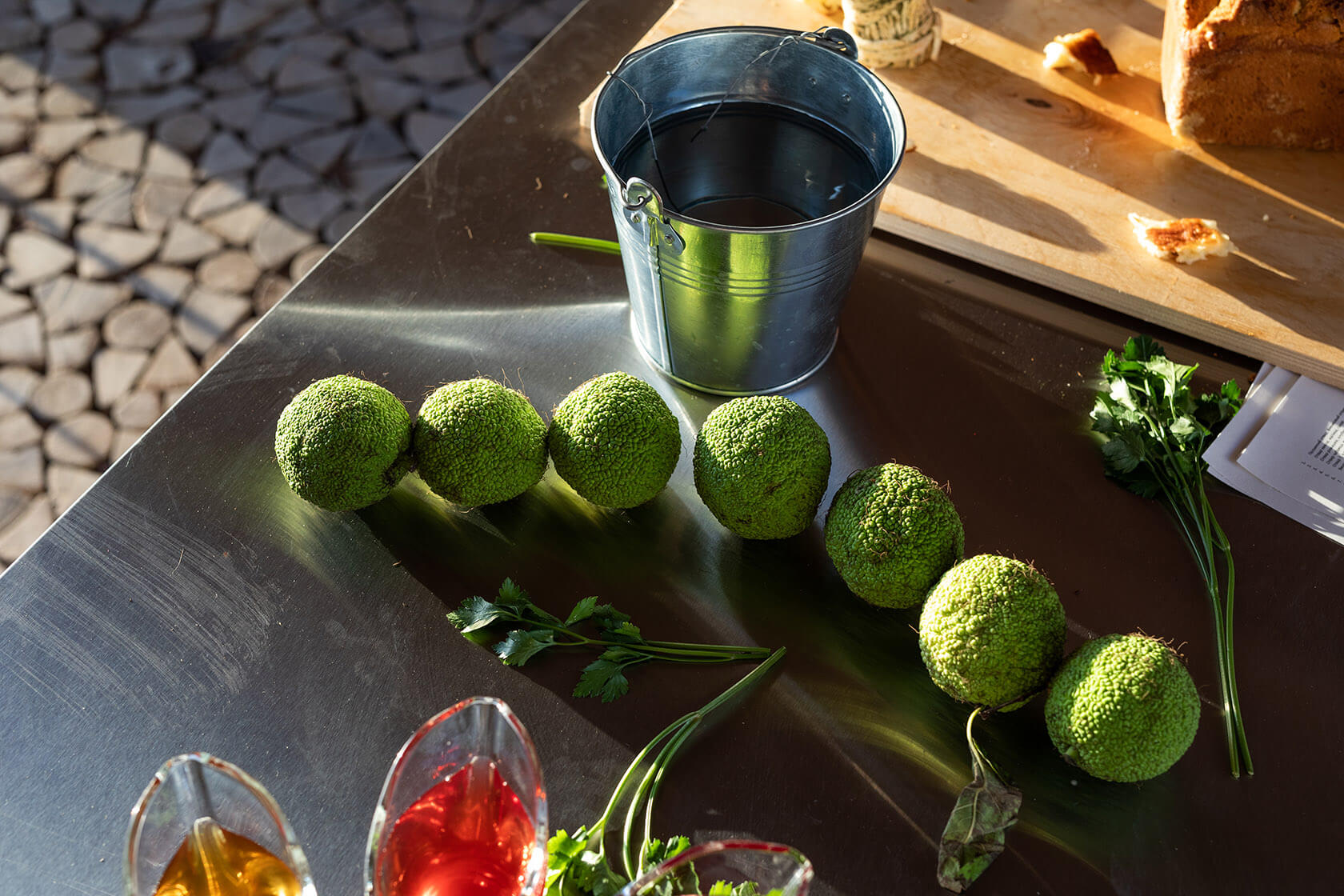
2. Residency = Welcome, or There Is No Such Thing As Too Much Smiling
I've been travelling a lot for a long time now because it's just my thing. But my native Yekaterinburg airport remains a zone of duty-free memories for a different reason: I have welcomed and seen off so many artists here, monitored the arrivals and departures boards, rescued the luggage, drunk coffee, paid for accidentally expired parking with the last of my money… These memories always strike me accidentally. This time I'm finding it hard to grasp why the taxi is dragging at a snail's pace – don't I usually get there in the time of four music tracks?
I've always considered it crucial to meet the artist personally or delegate meeting them to a member of the residency team. I never really knew why, I just enjoyed it immensely and it felt right. Now, on the other side of the barrier, I seem to finally understand why this is so significant.
The road is quite an exciting undertaking and, most importantly, it is the start of an adventure. Once embarking on the road, many immediately start thinking about the purpose of their trip or about their destination (in my bio, there's a story of how I only realised that I'd be flying to Lapland at a self-check-in counter at the airport). In a nutshell, all these tickets, searches, forms, stamps, strict people in uniform and, naturally, the crew – make you believe (for a while) that it's really happening.
Flights are perfect for focusing on what comes immediately after. As a rule, if a person is not on their way back home, they have no idea what awaits them. The less they know, the more dependent they feel, the higher the level of anxiety, and even fear – the more questions they have. That is why, when they are met at the airport by someone who can answer all these questions, the creeping doubts give way to joy.
One more thing: when you come across familiar faces in an unfamiliar setting, people you've already spoken to, or, moreover, discussed this very meeting with – wouldn't this be reason enough for sincere smiles and joy? This also happens to be the first thing you've done side by side. Meetings at the airport are encouraging and welcoming smiles bring joy – even through surgical masks.
I've always considered it crucial to meet the artist personally or delegate meeting them to a member of the residency team. I never really knew why, I just enjoyed it immensely and it felt right. Now, on the other side of the barrier, I seem to finally understand why this is so significant.
The road is quite an exciting undertaking and, most importantly, it is the start of an adventure. Once embarking on the road, many immediately start thinking about the purpose of their trip or about their destination (in my bio, there's a story of how I only realised that I'd be flying to Lapland at a self-check-in counter at the airport). In a nutshell, all these tickets, searches, forms, stamps, strict people in uniform and, naturally, the crew – make you believe (for a while) that it's really happening.
Flights are perfect for focusing on what comes immediately after. As a rule, if a person is not on their way back home, they have no idea what awaits them. The less they know, the more dependent they feel, the higher the level of anxiety, and even fear – the more questions they have. That is why, when they are met at the airport by someone who can answer all these questions, the creeping doubts give way to joy.
One more thing: when you come across familiar faces in an unfamiliar setting, people you've already spoken to, or, moreover, discussed this very meeting with – wouldn't this be reason enough for sincere smiles and joy? This also happens to be the first thing you've done side by side. Meetings at the airport are encouraging and welcoming smiles bring joy – even through surgical masks.
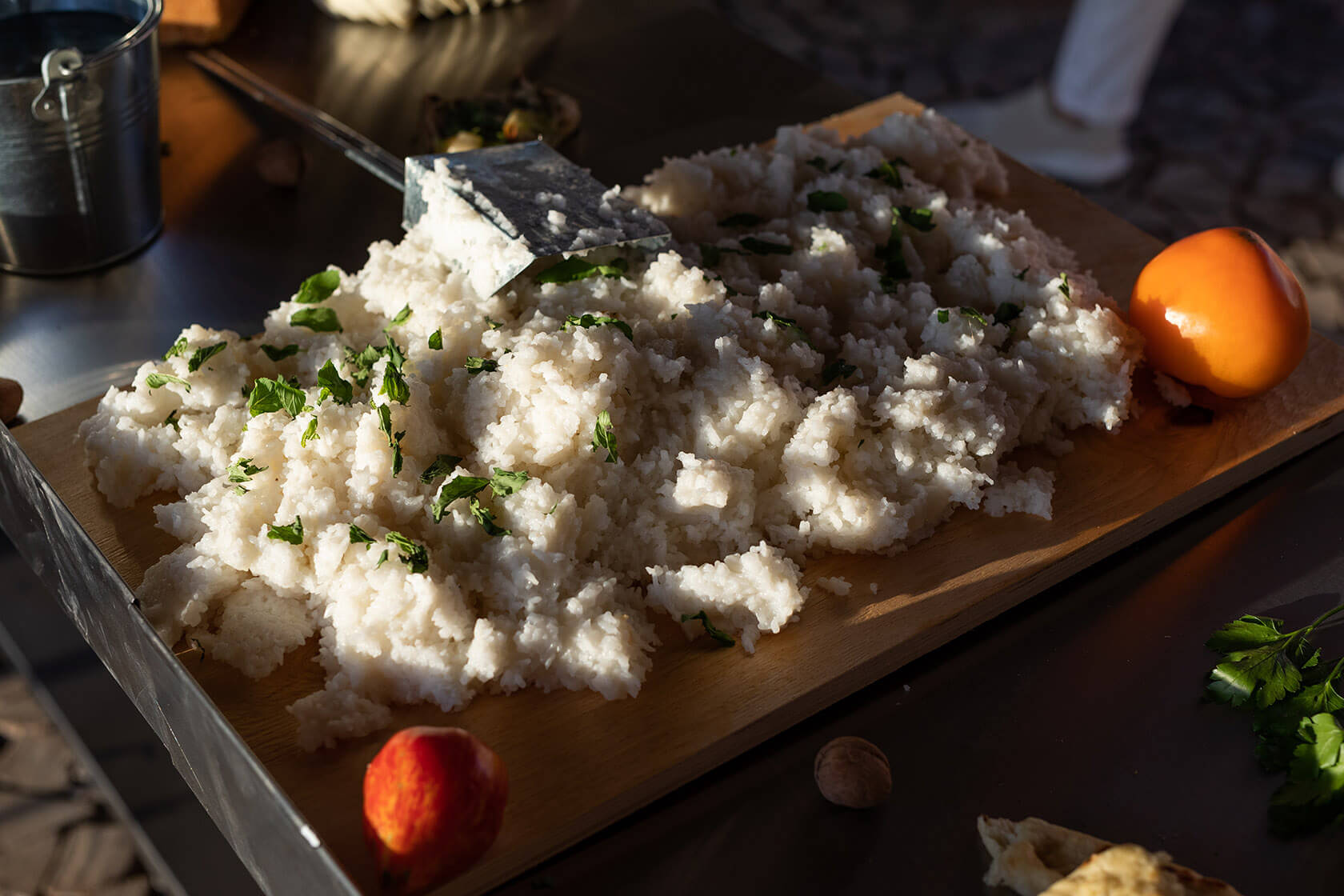
3. Residency = Routine, or How to Keep In Mind Why You're Here
As the saying goes, 'the housing problem has corrupted everyone'. When adapting this phrase to the residency realm, we can safely say, 'The housing problem has ruined everything'. Simply because there is no option to answer the question 'How are you finding the residency?' with 'Everything is great, but the housing could be better'. Everything starts with housing, continues with housing, and ends with housing. Therefore, it makes sense that at the start of the residency it takes some time for the participant to settle in: that is, to familiarise themselves with their new reality and get the housing problem over and done with.
When settling in, it is crucial to remember to make a schedule and distribute the existing residency tasks across the heaven (or hell) of everyday life. My task is quite challenging: the residency coincides with the summer holidays and takes place in a seaside resort area. On the one hand, this is a unique way to mix business with pleasure, but on the other hand, it is too easy to succumb to the temptations of the sea and sun.
We are slowly putting together a regime, drawing concentric circles of exploration on new terrain, starting from our courtyard. While the construction of the resident cottage is underway, we are living in the nearest village, blending with tourists. Since I am in residency with a child, this is an advantage, as the place we are staying in is teeming with children and my daughter has effortlessly entered into the neighbourhood life. A bunch of games that we strategically brought over (overstuffing the picnic backpack) is a great help. My daughter's willingness to socialise provides me with at least four hours to work at the computer a day. This becomes the backbone of our schedule.
Now that the writing schedule is sorted out, I need to make sure that I don't overdo it – that is, simply pencil in the sea. It's very important to sort out food and water. We're approaching this task slowly, limiting ourselves to necessities. So far, we were happy to come across Gayane, the main fruit, vegetables and nuts dealer on our street. Living in the village in the summer is rather pleasant: the cult of shorts and flip flops reigns here, so everything is simple and low-key, just like at home. I can finish writing a paragraph, put a pot of water on the stove, pop out to Gayane's for new potatoes, return to my boiling water and drop the potatoes in. While they are cooking, I get to write another paragraph and then feed the child. The main thing is to keep in mind that I have to write something. And to feed the child. Regularly.
When settling in, it is crucial to remember to make a schedule and distribute the existing residency tasks across the heaven (or hell) of everyday life. My task is quite challenging: the residency coincides with the summer holidays and takes place in a seaside resort area. On the one hand, this is a unique way to mix business with pleasure, but on the other hand, it is too easy to succumb to the temptations of the sea and sun.
We are slowly putting together a regime, drawing concentric circles of exploration on new terrain, starting from our courtyard. While the construction of the resident cottage is underway, we are living in the nearest village, blending with tourists. Since I am in residency with a child, this is an advantage, as the place we are staying in is teeming with children and my daughter has effortlessly entered into the neighbourhood life. A bunch of games that we strategically brought over (overstuffing the picnic backpack) is a great help. My daughter's willingness to socialise provides me with at least four hours to work at the computer a day. This becomes the backbone of our schedule.
Now that the writing schedule is sorted out, I need to make sure that I don't overdo it – that is, simply pencil in the sea. It's very important to sort out food and water. We're approaching this task slowly, limiting ourselves to necessities. So far, we were happy to come across Gayane, the main fruit, vegetables and nuts dealer on our street. Living in the village in the summer is rather pleasant: the cult of shorts and flip flops reigns here, so everything is simple and low-key, just like at home. I can finish writing a paragraph, put a pot of water on the stove, pop out to Gayane's for new potatoes, return to my boiling water and drop the potatoes in. While they are cooking, I get to write another paragraph and then feed the child. The main thing is to keep in mind that I have to write something. And to feed the child. Regularly.
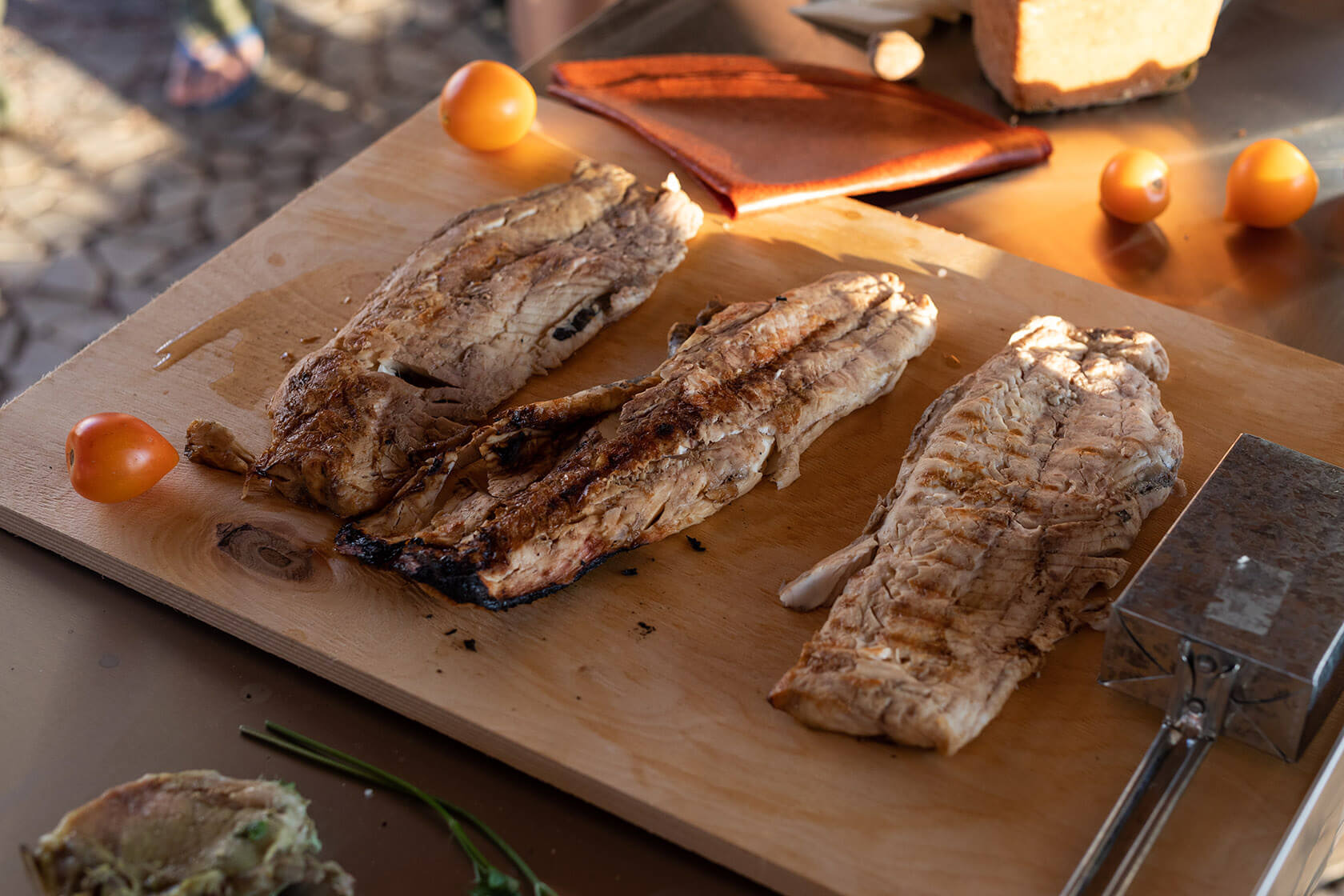
4. Residency = Place, or How to Know Where You Are
Some residencies self-describe as 'focusing on site-specific projects'. I think this is an empty statement because it is quite difficult to avoid the specifics of the location since residents tend to move in space to arrive there and eventually become utterly surrounded and enveloped by the place. I do not yet understand where exactly I am, but I have a few keywords – reference points. There's more and more of them every day.
Kuban. In fact, all Chaikas are originally from Kuban: this surname is common among the Don Cossacks. My mother's side of the family resided in the area for generations before my great-grandfather was dispossessed in the 1930s and exiled to the Urals with his youngest children. I have visited the location of his house because it means a lot to my mother. Our relatives still live there and I'm hoping to stay with them for a bit after the residency is over. Kuban is an important chapter in my search for a home of my own. That is why I wanted to be here in the mode that would allow me to write.
Wine. I love wine and I love factories. In fact, the first manufacture that I ever set foot in was (not counting the railway), perhaps, the Abrau-Durso winery in Novorossiysk. I was only a kid, probably not much older than my daughter is now, but I really enjoyed it. Just like Sonya enjoys walking endlessly along the vineyards and through cellars, trying to recognise the aroma and aerate the wine in my glass. It is nice to observe hectares of vineyards and to know that they are populated with seven varieties of grapes, used to produce quite decent wines. In the Urals, you rarely come across a full-cycle production aimed at the individual end-user as opposed to yet another huge factory. This co-scale of nature and man that exists in wine production, astounds the industrial part of my imagination that was raised on yeast-free sedimentary rocks.
The estuary. The windows of the unfinished residency cottage look out on the estuary. While I never imagined what it would look like (as a matter of fact, it resembles a bay or a lagoon), I had an idea what it sounded like thanks to the rampant alliteration of a Russian tongue-twister featuring burbots, the tench, love and allures of the foggy estuary.
The Khazars. I am passionate about archaeological museums but I don't know a thing about them. I am fascinated by the possibility of coming across moments in time, sometimes I lose myself to those moments. But my knowledge is often not enough to piece them together into something singular and tangible: I can never connect the remaining dots in the context. Same here, on the Taman Peninsula: the lists of local archaeological diversity alone send my head into a spin and make my anxiety rear its ugly head as half-learned pieces of world history emerge. Therefore, out of all the words that mark the heritage of this land, I've grabbed onto something that had fascinated me for a long time – the Khazars and started rereading Dictionary of the Khazars: A Lexicon Novel by Milorad Pavić. It's a bizarre coincidence that the first time I've read it also took place in Kuban, all of twenty-one years ago.
Kuban. In fact, all Chaikas are originally from Kuban: this surname is common among the Don Cossacks. My mother's side of the family resided in the area for generations before my great-grandfather was dispossessed in the 1930s and exiled to the Urals with his youngest children. I have visited the location of his house because it means a lot to my mother. Our relatives still live there and I'm hoping to stay with them for a bit after the residency is over. Kuban is an important chapter in my search for a home of my own. That is why I wanted to be here in the mode that would allow me to write.
Wine. I love wine and I love factories. In fact, the first manufacture that I ever set foot in was (not counting the railway), perhaps, the Abrau-Durso winery in Novorossiysk. I was only a kid, probably not much older than my daughter is now, but I really enjoyed it. Just like Sonya enjoys walking endlessly along the vineyards and through cellars, trying to recognise the aroma and aerate the wine in my glass. It is nice to observe hectares of vineyards and to know that they are populated with seven varieties of grapes, used to produce quite decent wines. In the Urals, you rarely come across a full-cycle production aimed at the individual end-user as opposed to yet another huge factory. This co-scale of nature and man that exists in wine production, astounds the industrial part of my imagination that was raised on yeast-free sedimentary rocks.
The estuary. The windows of the unfinished residency cottage look out on the estuary. While I never imagined what it would look like (as a matter of fact, it resembles a bay or a lagoon), I had an idea what it sounded like thanks to the rampant alliteration of a Russian tongue-twister featuring burbots, the tench, love and allures of the foggy estuary.
The Khazars. I am passionate about archaeological museums but I don't know a thing about them. I am fascinated by the possibility of coming across moments in time, sometimes I lose myself to those moments. But my knowledge is often not enough to piece them together into something singular and tangible: I can never connect the remaining dots in the context. Same here, on the Taman Peninsula: the lists of local archaeological diversity alone send my head into a spin and make my anxiety rear its ugly head as half-learned pieces of world history emerge. Therefore, out of all the words that mark the heritage of this land, I've grabbed onto something that had fascinated me for a long time – the Khazars and started rereading Dictionary of the Khazars: A Lexicon Novel by Milorad Pavić. It's a bizarre coincidence that the first time I've read it also took place in Kuban, all of twenty-one years ago.
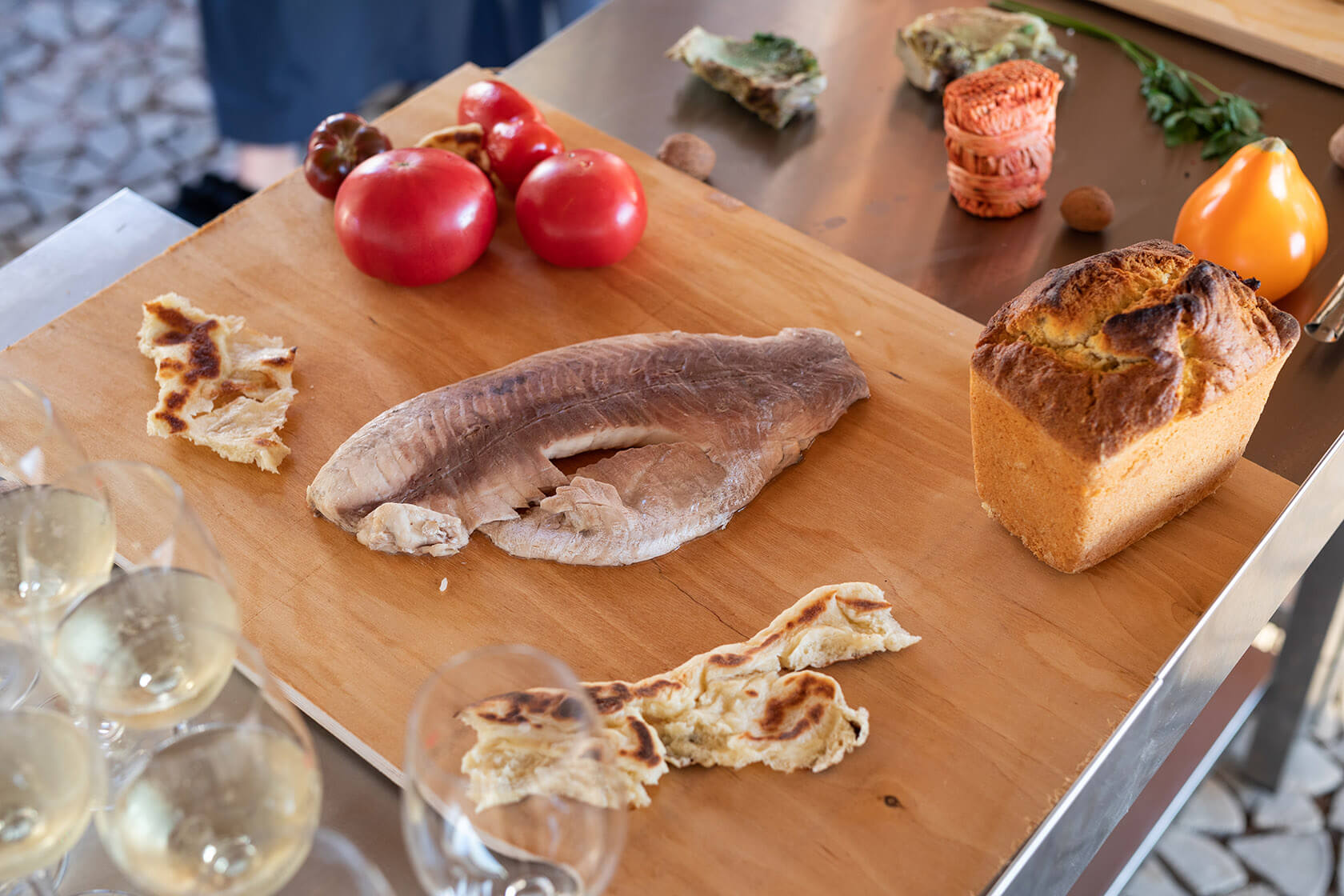
5. Residency = Freeing Up Time, or What To Do With Other Tasks
I have come across different working schedules for artists. Some artists, upon arriving at the residency, managed to miraculously clear up their schedules of all other obligations and to surrender themselves to the current of the residency completely or were even eager to accelerate it to the point of overload. Other artists still had a lot of other things to do on the side but managed to relegate them to the time slots in the day that don't work for me. And yet at other times, things were just completely different (which, by the way, I was able to get used to after years of hardly tolerating it): the artist brings with all their other obligations with them, completes them according to their schedule – and uses the remainder of the time to work on their residency project (and sleep).
Honestly, I really wanted to be in the first category, but it seems that things went down according to the third scenario.
Apparently, due to the relocation itself – and particularly a relocation to a warmer and by all indications a holiday destination – my time in residency feels like a holiday. To put it simply, it is slipping away like the proverbial sand. Since the beginning of the pandemic, my sense of temporality has been all over the place – it's terrifying to admit that according to my inner 'watch' 2021 has not yet begun, and European summer has not even started. So it seems that I haven't been particularly successful in outlining plans for the residency.
I blame it on the fact that I brought a bunch of unfinished projects with me in the first place. Some (reading- and writing-related) very cleverly mimicked the tasks of the residency and filled my days and even weeks. Others have accumulated across unread emails (my long-standing sin). This is not bad per se: the bad thing is that I am angry with myself for being unable to grasp the legendary expanding residency time, some mythical point of productivity due to clogging the very possibility with the notorious multitasking.
Honestly, I really wanted to be in the first category, but it seems that things went down according to the third scenario.
Apparently, due to the relocation itself – and particularly a relocation to a warmer and by all indications a holiday destination – my time in residency feels like a holiday. To put it simply, it is slipping away like the proverbial sand. Since the beginning of the pandemic, my sense of temporality has been all over the place – it's terrifying to admit that according to my inner 'watch' 2021 has not yet begun, and European summer has not even started. So it seems that I haven't been particularly successful in outlining plans for the residency.
I blame it on the fact that I brought a bunch of unfinished projects with me in the first place. Some (reading- and writing-related) very cleverly mimicked the tasks of the residency and filled my days and even weeks. Others have accumulated across unread emails (my long-standing sin). This is not bad per se: the bad thing is that I am angry with myself for being unable to grasp the legendary expanding residency time, some mythical point of productivity due to clogging the very possibility with the notorious multitasking.
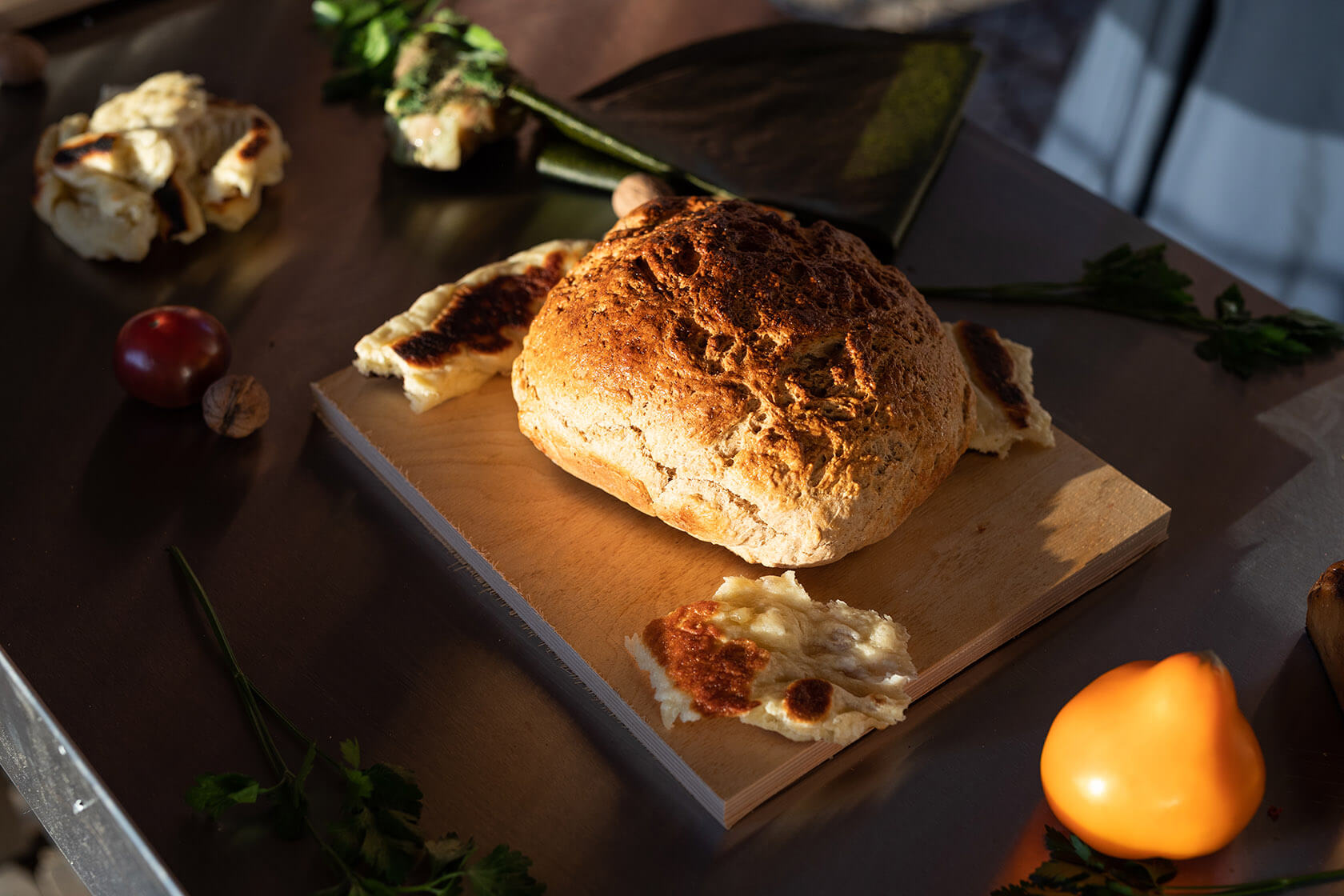
6. Residency = A Goal Inhabited by the Ghost of Efficiency
I am in the camp of those who believe that even mentioning 'efficiency' in the context of residencies is indecent. It may be a somewhat romantic outlook, but in my ideal world residencies exist for the sake of residencies, as a purely self-justified use of space and time, which differs, however, from pure aesthetics in its logistics and infrastructure.
Nevertheless, one of the important features of any residency is its fundamental completeness. A residency is not a book that you can open and read endlessly on long winter evenings, it is a book that, when opened, must be read, closed and put aside, on top of the stack of other finished books.
This completeness is often not quite in sync with efficiency. I would go so far as to say that it is more appropriate to discuss some internal goal that is dictated by the process in which the resident finds themselves.
My goal lies within the scope of the book I'm working on, Art Residencies and How to Cook Them. So far this book only exists as a concept, as according to the residency I first have to: outline the structure, put together a methodological section, use my notes to put together the chapter on the Shishimskaya Gorka residency, which I supervised and which I tried to 'cook' twice. Most importantly, my task is to observe the residency in order to write a chapter about it, and – the crucial part – make lunch.
In this context, lunch is a gastronomic presentation of the key features of the residency. Methodologically and gradually, the steps are: to identify the main points and processes in the residency and, through multiple links in the chain of references, turn them into ingredients and technologies for their processing, and then into dishes that taste good. For some reason, this makes me nervous.
Nevertheless, one of the important features of any residency is its fundamental completeness. A residency is not a book that you can open and read endlessly on long winter evenings, it is a book that, when opened, must be read, closed and put aside, on top of the stack of other finished books.
This completeness is often not quite in sync with efficiency. I would go so far as to say that it is more appropriate to discuss some internal goal that is dictated by the process in which the resident finds themselves.
My goal lies within the scope of the book I'm working on, Art Residencies and How to Cook Them. So far this book only exists as a concept, as according to the residency I first have to: outline the structure, put together a methodological section, use my notes to put together the chapter on the Shishimskaya Gorka residency, which I supervised and which I tried to 'cook' twice. Most importantly, my task is to observe the residency in order to write a chapter about it, and – the crucial part – make lunch.
In this context, lunch is a gastronomic presentation of the key features of the residency. Methodologically and gradually, the steps are: to identify the main points and processes in the residency and, through multiple links in the chain of references, turn them into ingredients and technologies for their processing, and then into dishes that taste good. For some reason, this makes me nervous.
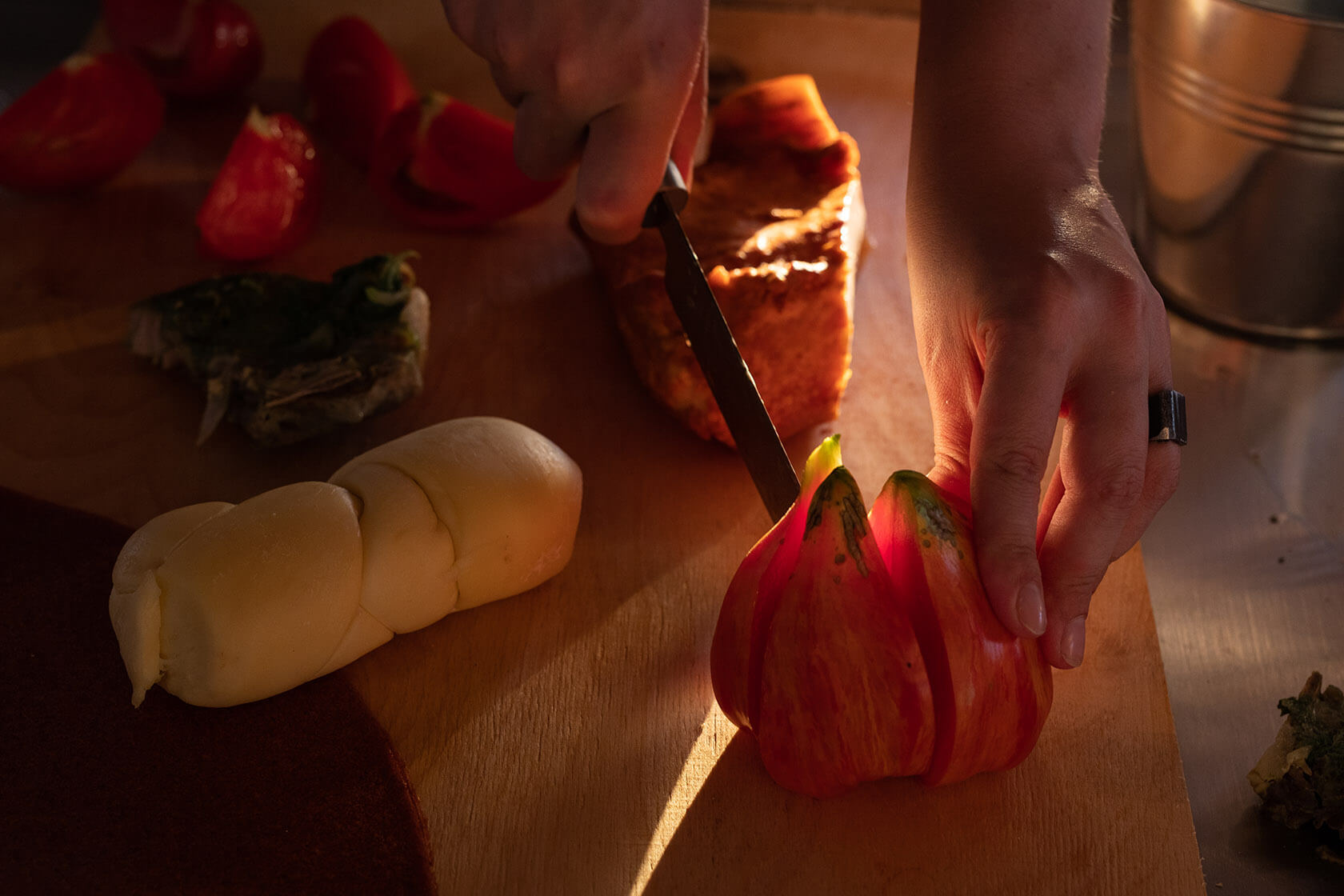
7. Residency = Process, or How to Catch the End of an Escaping Thread
I believe that process is the main ingredient of any residency. This simple statement turns out to be very cunning, because how do we distinguish between the art/work process and life? Since this life takes place in a seaside resort, there are, of course, some signs that betray me as the odd one out among holidaymakers. Laptop and coffee in the morning, books laid out in the summer kitchen, and my confidence that the sea won't disappear if we don't go for a swim.
But the main thing that sets this process apart is its dynamics. In contrast to the hectic holiday relaxation with its vital regularity, being inside a process built from the outside is permeated with dynamics. There is something healthy about this, it does not resemble the stressful project-oriented pace, it is more like building an internal balance of thought and action. Residency is the process of training psychological dynamics.
Another great word is tuning. Tuning, calibration, pre-launch activities. But this does not at all mean that the residency is a preparatory stage for some kind of work. This is the job itself. Perhaps it's a job to restore the resources to do more work, slow-paced, taking care of all the functional parts and mechanisms inside. But again, this is not about stopping the entire working machine inside us for service. Nothing stops.
It just works differently. Everything inside senses that this is a chance to try something that is not usually done, or wouldn't work under other circumstances. Internal tuning involves and maybe even encourages trial and error. The readiness for dynamic stretching along the inner axes allows some important (but not always visible) parts to come into proper contact.
Here's a funny example. I write and read a lot about writing in residency. Southern nights are not very conducive to sleeping, so I do it intermittently, and at some point between sleep and waking, I realise that I am not dreaming at all, but dictating it to myself, writing it in real-time.
But the main thing that sets this process apart is its dynamics. In contrast to the hectic holiday relaxation with its vital regularity, being inside a process built from the outside is permeated with dynamics. There is something healthy about this, it does not resemble the stressful project-oriented pace, it is more like building an internal balance of thought and action. Residency is the process of training psychological dynamics.
Another great word is tuning. Tuning, calibration, pre-launch activities. But this does not at all mean that the residency is a preparatory stage for some kind of work. This is the job itself. Perhaps it's a job to restore the resources to do more work, slow-paced, taking care of all the functional parts and mechanisms inside. But again, this is not about stopping the entire working machine inside us for service. Nothing stops.
It just works differently. Everything inside senses that this is a chance to try something that is not usually done, or wouldn't work under other circumstances. Internal tuning involves and maybe even encourages trial and error. The readiness for dynamic stretching along the inner axes allows some important (but not always visible) parts to come into proper contact.
Here's a funny example. I write and read a lot about writing in residency. Southern nights are not very conducive to sleeping, so I do it intermittently, and at some point between sleep and waking, I realise that I am not dreaming at all, but dictating it to myself, writing it in real-time.
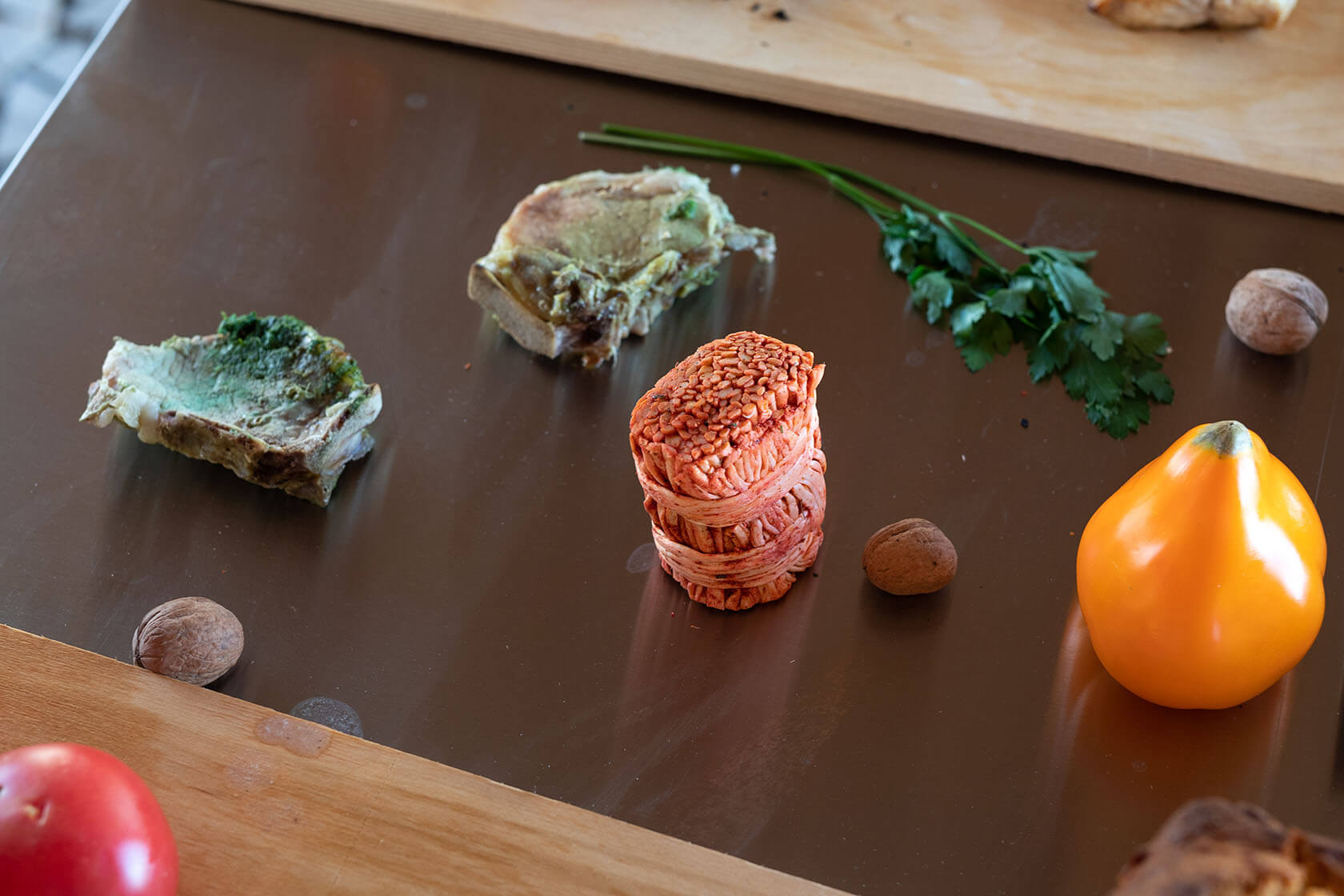
8. Residency= Communication, or Conversations with Invisible Filters
In order to familiarise ourselves with the local context, we have been visiting local archaeological sites a lot. This is incredibly interesting, although it can hardly have any direct effect on my process. That's why I try to add some semantic filters to my tourist curiosity.
Two things help me in this. First, I believe that no matter what we do, we always do the same thing. I make no judgement whether this is a consequence of consistency or limitations of thoughts and fantasies. Secondly, I have a goal of sorts. I can outline a very wide field for it and name it 'food'. Just because I have decided that info about food is essential to conducting my data gastronomisation convincingly.
Therefore, I try to communicate a lot during these trips: ask guides questions, chat with taxi drivers, meet people in the market and in the building we are living in, and even on the beach. I am very interested in talking to everyone, but sometimes I feel like a little cheat. Because even the most direct question that I ask ('Do you sell redlip mullet?') seems to have a built-in filter, which even I can only imply, and my interlocutors are not aware of it at all.
At the same time, these invisible filters of mine are a convenient expansion tool: nothing is useless, any information can turn out to be priceless if you just tune the filter system correctly.
Two things help me in this. First, I believe that no matter what we do, we always do the same thing. I make no judgement whether this is a consequence of consistency or limitations of thoughts and fantasies. Secondly, I have a goal of sorts. I can outline a very wide field for it and name it 'food'. Just because I have decided that info about food is essential to conducting my data gastronomisation convincingly.
Therefore, I try to communicate a lot during these trips: ask guides questions, chat with taxi drivers, meet people in the market and in the building we are living in, and even on the beach. I am very interested in talking to everyone, but sometimes I feel like a little cheat. Because even the most direct question that I ask ('Do you sell redlip mullet?') seems to have a built-in filter, which even I can only imply, and my interlocutors are not aware of it at all.
At the same time, these invisible filters of mine are a convenient expansion tool: nothing is useless, any information can turn out to be priceless if you just tune the filter system correctly.
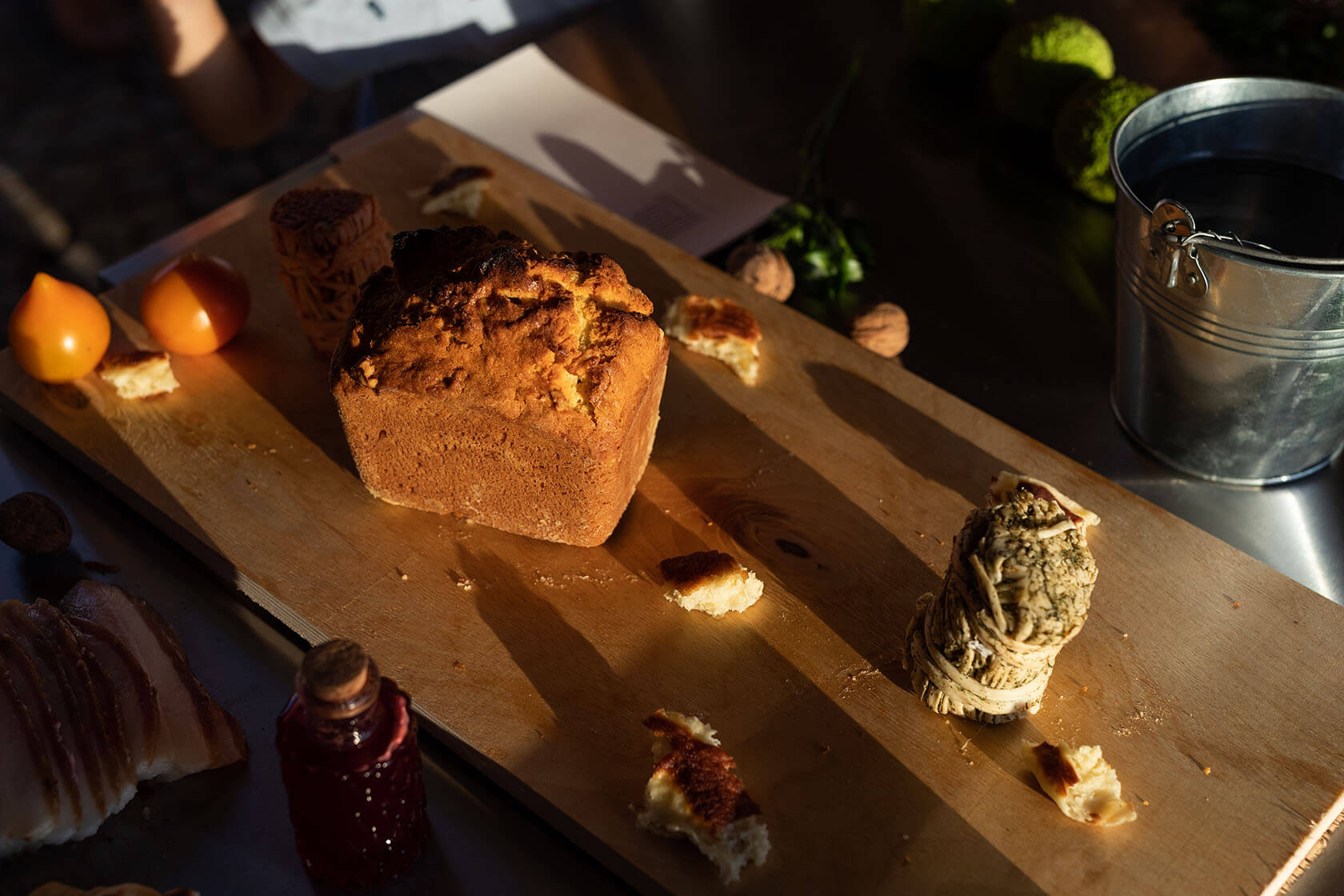
9. Residency = Acceleration, or Why Something New Emerges
Sometimes they say that residencies are about concentration or a clear focus on something. I don't really trust such statements if only because concentration is a method of work, and the method depends on the person, not on the location. For example, my method is more of a rejection of concentration, the cultivation of dispersed attention, I would even say, deliberate scattering of attention. I like this feeling of data dispersion as if everything around us wasn't interconnected one way or another.
It may sound like the Swiss cheese method, but I am not at all tempted to be the one who multiplies the holes on the way to achieving my goal. I find it more pleasant to think about foraging, collecting, or putting things together, about some kind of process that eventually adds up value (and volume).
Thanks to the locals' habit of paying by direct card transfer, I was lucky to find out that the father of the woman who sold me algae soap on the central beach of Golubitskaya village was called Zeno. It is unlikely that it was the Zeno but still nice and amusing. In my opinion, the whole residency inside process can be described through its heap paradox. By putting together grains of sand one by one, we can never say with certainty which grain of sand will be the start of a pile or an entire sandy beach.
It is the same with data: collecting pieces of data grain by grain does not give a sense of sufficient volume until the necessary volume is collected. From the temporal point of view, as long as each contribution exists on its own, time seems to slow down. As soon as all the data is collected in one pot, it launches a rapid fermentation process that can no longer be stopped. Naturally, the task at the residency is to leave enough time for fermentation. Even knowledge, when not fermented properly, cannot be transported.
It may sound like the Swiss cheese method, but I am not at all tempted to be the one who multiplies the holes on the way to achieving my goal. I find it more pleasant to think about foraging, collecting, or putting things together, about some kind of process that eventually adds up value (and volume).
Thanks to the locals' habit of paying by direct card transfer, I was lucky to find out that the father of the woman who sold me algae soap on the central beach of Golubitskaya village was called Zeno. It is unlikely that it was the Zeno but still nice and amusing. In my opinion, the whole residency inside process can be described through its heap paradox. By putting together grains of sand one by one, we can never say with certainty which grain of sand will be the start of a pile or an entire sandy beach.
It is the same with data: collecting pieces of data grain by grain does not give a sense of sufficient volume until the necessary volume is collected. From the temporal point of view, as long as each contribution exists on its own, time seems to slow down. As soon as all the data is collected in one pot, it launches a rapid fermentation process that can no longer be stopped. Naturally, the task at the residency is to leave enough time for fermentation. Even knowledge, when not fermented properly, cannot be transported.
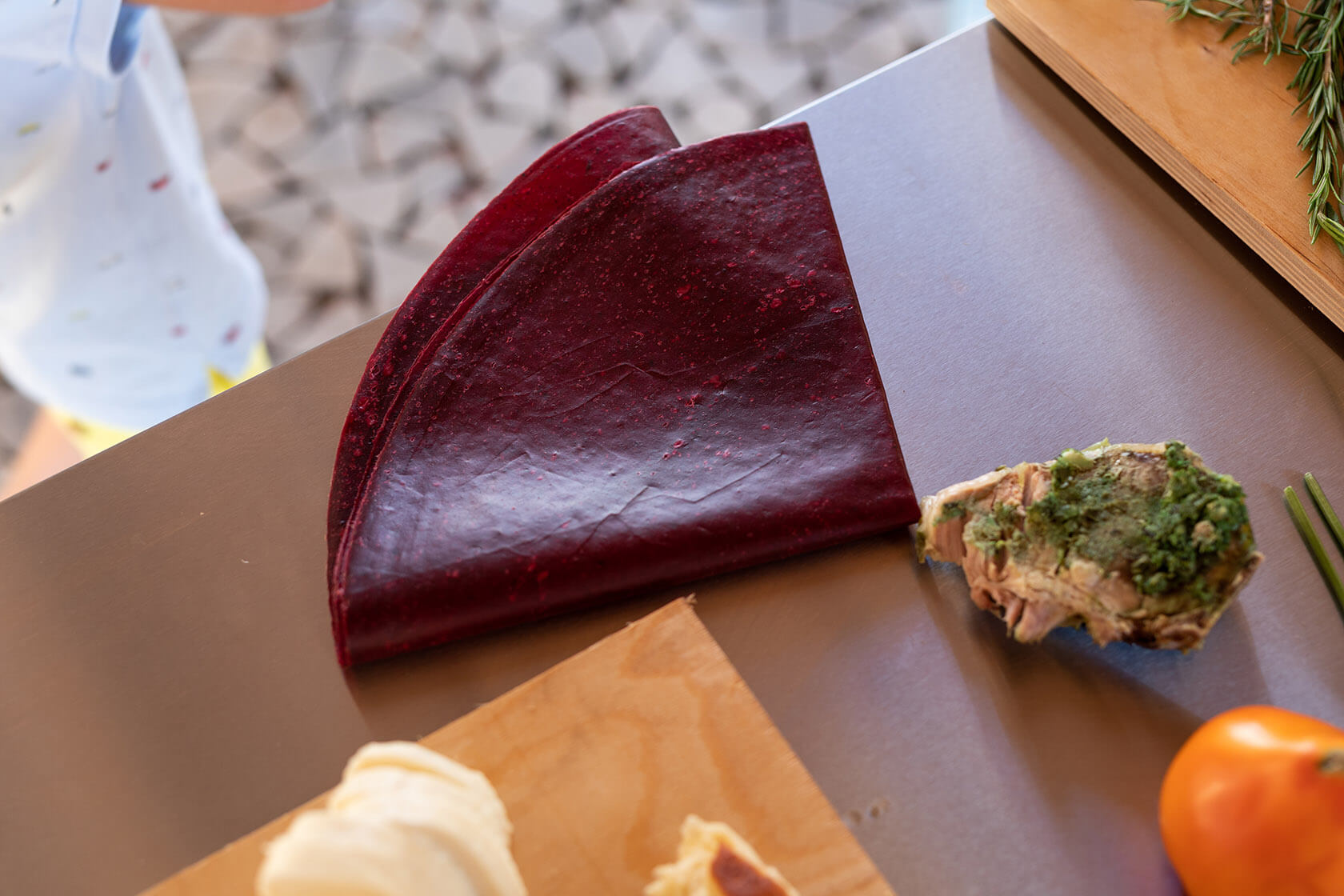
10. Residency = Fear of Leaving Without Being Transformed
A residency with no obligations – and this is exactly what the Golubitskoe Art Residency is – is, on the one hand, a luxury, and on the other hand, a risk. Because the absence of obligations does not lead to the dissolution of tasks but only to the fact that all processes become, as it were, invisible and are measured by the personal responsibility and discipline of the resident. Simply put, it's very easy to become lazy and do nothing. This is but one extreme.
There is another extreme – making a plan ahead of time and sticking to it. I would even say that this is one of the deadly sins of residencies. Acting according to plan is a feature of the strict design and production race. The task of the production conditions is to meet our expectations in every possible way, the task of the residency is to meet them and take them further.
I believe that the residency is successful when the volume of what it was impossible to prepare for (in terms of content), of what could not be foreseen, is sufficient to at least somehow change the views or opinions of the resident.
That's why I am very scared to remain unchanged by this experience. That is why, willy-nilly, I add something new to every familiar thing.
There is another extreme – making a plan ahead of time and sticking to it. I would even say that this is one of the deadly sins of residencies. Acting according to plan is a feature of the strict design and production race. The task of the production conditions is to meet our expectations in every possible way, the task of the residency is to meet them and take them further.
I believe that the residency is successful when the volume of what it was impossible to prepare for (in terms of content), of what could not be foreseen, is sufficient to at least somehow change the views or opinions of the resident.
That's why I am very scared to remain unchanged by this experience. That is why, willy-nilly, I add something new to every familiar thing.
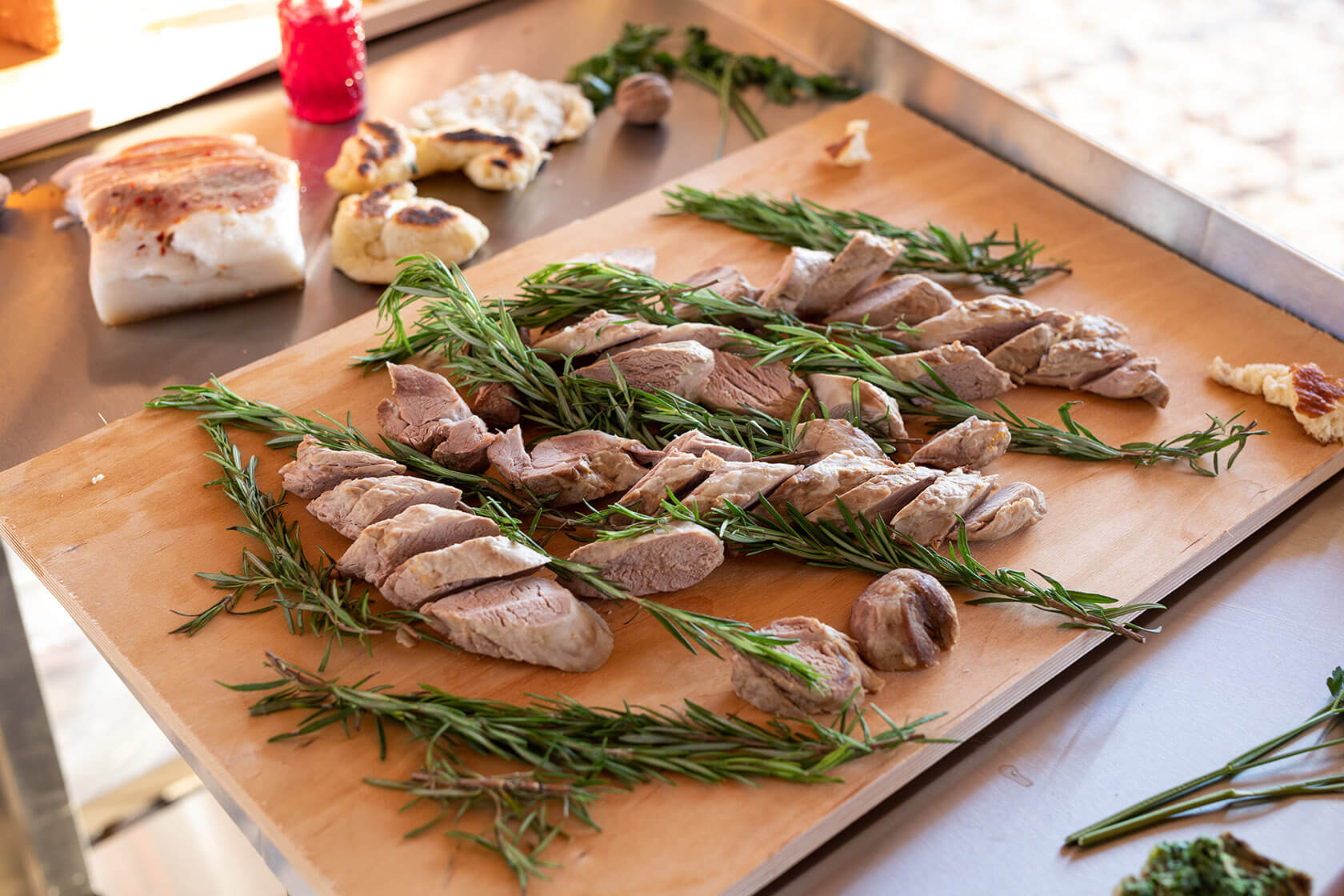
11. Residency = Setting, or Why You Should Keep Your Eyes Open
It makes sense that residencies are based on relocation. That's the fun of them. After all, when relocating, the resident seems to be taking their idea to an unfamiliar context. I would say that changing the context is an important maturity test. If the idea can withstand the transfer, it means that it wasn't pointless. I really want not to be like one of those people whose design manifestations I tend to treat with great scepticism. I do not want to follow any ideas without paying attention to my surroundings.
And I am surrounded by a wonderful new world. A seaside resort on the coast of the Azov Sea that I would hardly have visited on my own. People come here for short and inexpensive holidays with their families, and there are lots of children, lots of elderly people, lots of grilled meat, lots of karaoke bars and not too much alcohol and sex. Many holidaymakers return here every year –and the very idea of such stability puzzles me.
I am surrounded by the 14-metre archaeological layer, the sea and estuaries, the land, which for centuries has not been able to make up its mind as to whether it is an archipelago, a large island or part of the mainland. There is a lot of salt that emerges, off-white, from the bottom up to the surface where the water refuses to behave for some reason. Winds and waves carry shellfish, empty shells, water chestnuts and stones with holes of unknown aetiology ashore.
I am surrounded by vineyards, heat, tornadoes and water, rarely but convincingly falling from the sky. I am surrounded by vivid tomatoes that taste sweeter than peaches, wild herbs, berries, and fields of sunflowers and. I am surrounded by endless sandy beaches, cliffs, from which the Paleolithic people used to admire the sunsets. I am surrounded by hills, mounds and long-overgrown roads along which the great Russian poets once made their way either for the sake of war or peace in the Russian Empire that sprawled in all directions. They whiled away their slow pace by composing simple iambics in wagons.
And I am surrounded by a wonderful new world. A seaside resort on the coast of the Azov Sea that I would hardly have visited on my own. People come here for short and inexpensive holidays with their families, and there are lots of children, lots of elderly people, lots of grilled meat, lots of karaoke bars and not too much alcohol and sex. Many holidaymakers return here every year –and the very idea of such stability puzzles me.
I am surrounded by the 14-metre archaeological layer, the sea and estuaries, the land, which for centuries has not been able to make up its mind as to whether it is an archipelago, a large island or part of the mainland. There is a lot of salt that emerges, off-white, from the bottom up to the surface where the water refuses to behave for some reason. Winds and waves carry shellfish, empty shells, water chestnuts and stones with holes of unknown aetiology ashore.
I am surrounded by vineyards, heat, tornadoes and water, rarely but convincingly falling from the sky. I am surrounded by vivid tomatoes that taste sweeter than peaches, wild herbs, berries, and fields of sunflowers and. I am surrounded by endless sandy beaches, cliffs, from which the Paleolithic people used to admire the sunsets. I am surrounded by hills, mounds and long-overgrown roads along which the great Russian poets once made their way either for the sake of war or peace in the Russian Empire that sprawled in all directions. They whiled away their slow pace by composing simple iambics in wagons.
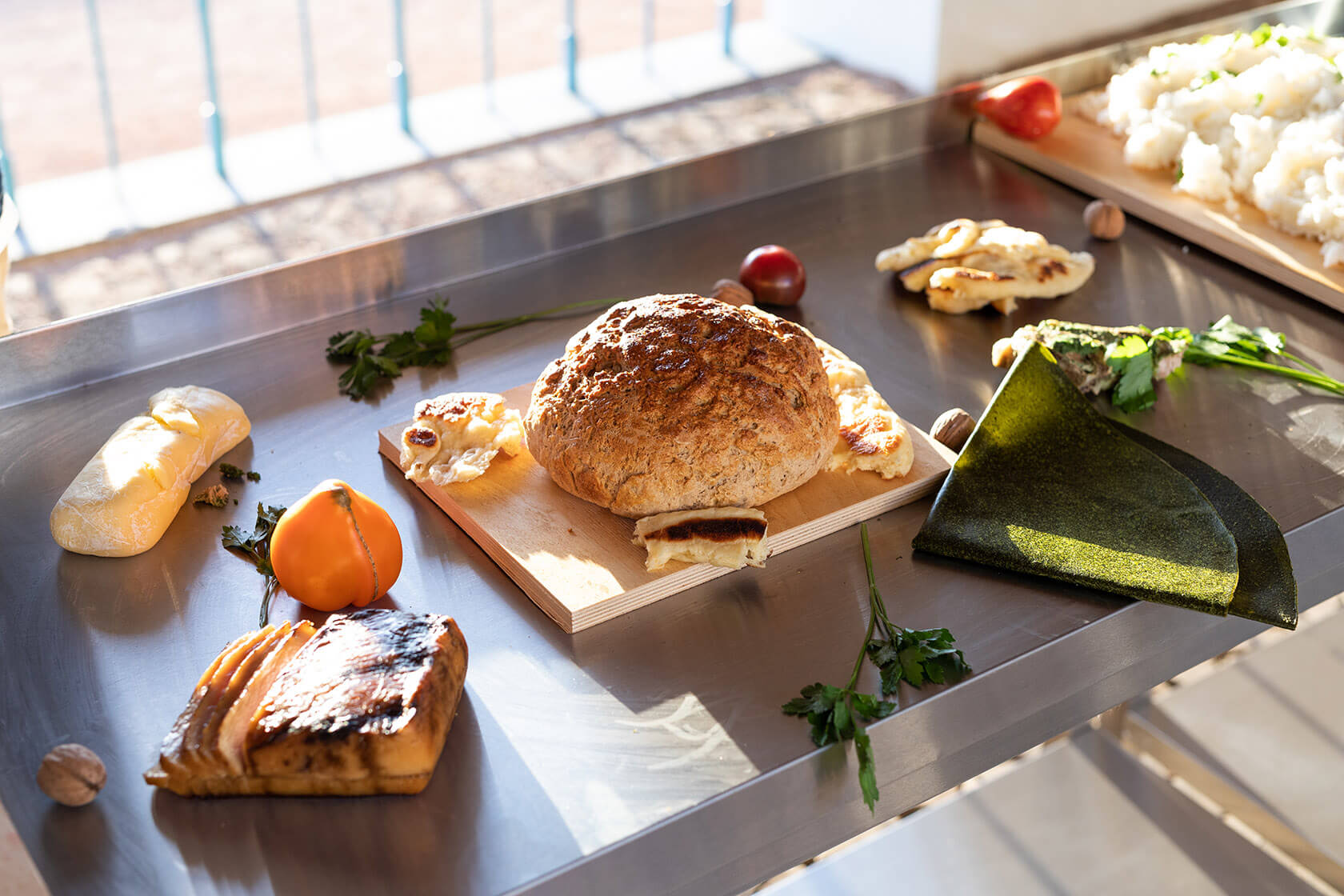
12. Residency = People, or The Hospitality Gene
It makes sense that residencies are based on relocation. That's the fun of them. After all, when relocating, the resident seems to be taking their idea to an unfamiliar context. I would say that changing the context is an important maturity test. If the idea can withstand the transfer, it means that it wasn't pointless. I really want not to be like one of those people whose design manifestations I tend to treat with great scepticism. I do not want to follow any ideas without paying attention to my surroundings.
And I am surrounded by a wonderful new world. A seaside resort on the coast of the Azov Sea that I would hardly have visited on my own. People come here for short and inexpensive holidays with their families, and there are lots of children, lots of elderly people, lots of grilled meat, lots of karaoke bars and not too much alcohol and sex. Many holidaymakers return here every year –and the very idea of such stability puzzles me.
I am surrounded by the 14-metre archaeological layer, the sea and estuaries, the land, which for centuries has not been able to make up its mind as to whether it is an archipelago, a large island or part of the mainland. There is a lot of salt that emerges, off-white, from the bottom up to the surface where the water refuses to behave for some reason. Winds and waves carry shellfish, empty shells, water chestnuts and stones with holes of unknown aetiology ashore.
I am surrounded by vineyards, heat, tornadoes and water, rarely but convincingly falling from the sky. I am surrounded by vivid tomatoes that taste sweeter than peaches, wild herbs, berries, and fields of sunflowers and. I am surrounded by endless sandy beaches, cliffs, from which the Paleolithic people used to admire the sunsets. I am surrounded by hills, mounds and long-overgrown roads along which the great Russian poets once made their way either for the sake of war or peace in the Russian Empire that sprawled in all directions. They whiled away their slow pace by composing simple iambics in wagons.
And I am surrounded by a wonderful new world. A seaside resort on the coast of the Azov Sea that I would hardly have visited on my own. People come here for short and inexpensive holidays with their families, and there are lots of children, lots of elderly people, lots of grilled meat, lots of karaoke bars and not too much alcohol and sex. Many holidaymakers return here every year –and the very idea of such stability puzzles me.
I am surrounded by the 14-metre archaeological layer, the sea and estuaries, the land, which for centuries has not been able to make up its mind as to whether it is an archipelago, a large island or part of the mainland. There is a lot of salt that emerges, off-white, from the bottom up to the surface where the water refuses to behave for some reason. Winds and waves carry shellfish, empty shells, water chestnuts and stones with holes of unknown aetiology ashore.
I am surrounded by vineyards, heat, tornadoes and water, rarely but convincingly falling from the sky. I am surrounded by vivid tomatoes that taste sweeter than peaches, wild herbs, berries, and fields of sunflowers and. I am surrounded by endless sandy beaches, cliffs, from which the Paleolithic people used to admire the sunsets. I am surrounded by hills, mounds and long-overgrown roads along which the great Russian poets once made their way either for the sake of war or peace in the Russian Empire that sprawled in all directions. They whiled away their slow pace by composing simple iambics in wagons.

13. Residency = Conclusion, or the Inability to End Things
I have long stopped counting days, so only plane tickets help. I lingered at the residency for a few extra days (thanks for your hospitality!) while on a quest to snatch the best tickets. And it made me think. Why should what happens to me at the residency after some final event (in my case it was a lunch for 40+ people) be considered as an 'after'? Shouldn't I stay and ponder over what happened, what I managed and didn't manage to accomplish?
I've already mentioned the acceleration of time when everything is thrown in one pot and starts to ferment. I believe that I have succeeded: I could feel the yeast start consuming sugar with constant acceleration, I could feel it boil and sizzle, cluck and start spilling out, into the concept frame I had prepared. I liked this acceleration, I liked its result, and I liked the ensuing fatigue and silence. But a small issue did pop up: on completion, after the successful fermentation, I want to extend this process and endlessly enjoy the aftertaste.
I've already mentioned the acceleration of time when everything is thrown in one pot and starts to ferment. I believe that I have succeeded: I could feel the yeast start consuming sugar with constant acceleration, I could feel it boil and sizzle, cluck and start spilling out, into the concept frame I had prepared. I liked this acceleration, I liked its result, and I liked the ensuing fatigue and silence. But a small issue did pop up: on completion, after the successful fermentation, I want to extend this process and endlessly enjoy the aftertaste.

14. Residency = Continuation, or the Magnificent Inertia of Thinking
In the course of my residency, my concept turned from timid to self-confident. I realised that it can work in foreign, unfamiliar lands, spaces, residencies which my gaze usually sweeps over. Although it was this 'external gaze' that confused me: to come to spend one's time inside the residency in order to stay on the outside, to live the life of a resident and try to maintain a meta-position. Only now I have to describe this experience by creating an additional distance for myself – a temporal one.
When I wrote about dispersed attention in residency, I did not mean lack of attention at all. On the contrary, I meant heightened attention. If there were special receptors in the body responsible for sensitivity to information and texture of the world around me, it is in the context of the residency that they would have been fully engaged and overloaded.
To put it simply, staying in a residency is not only an amazing opportunity to think and do what you came there for in the first place, but also a huge resource of new concepts and ideas. And if the idea you brought with you successfully ferments, then all the others, barely emerged or not yet conceived, invite you to look into a huge reservoir, as if saying: you have already made it so that we are at your fingertips, just figure out how to get us out of here.
When I wrote about dispersed attention in residency, I did not mean lack of attention at all. On the contrary, I meant heightened attention. If there were special receptors in the body responsible for sensitivity to information and texture of the world around me, it is in the context of the residency that they would have been fully engaged and overloaded.
To put it simply, staying in a residency is not only an amazing opportunity to think and do what you came there for in the first place, but also a huge resource of new concepts and ideas. And if the idea you brought with you successfully ferments, then all the others, barely emerged or not yet conceived, invite you to look into a huge reservoir, as if saying: you have already made it so that we are at your fingertips, just figure out how to get us out of here.
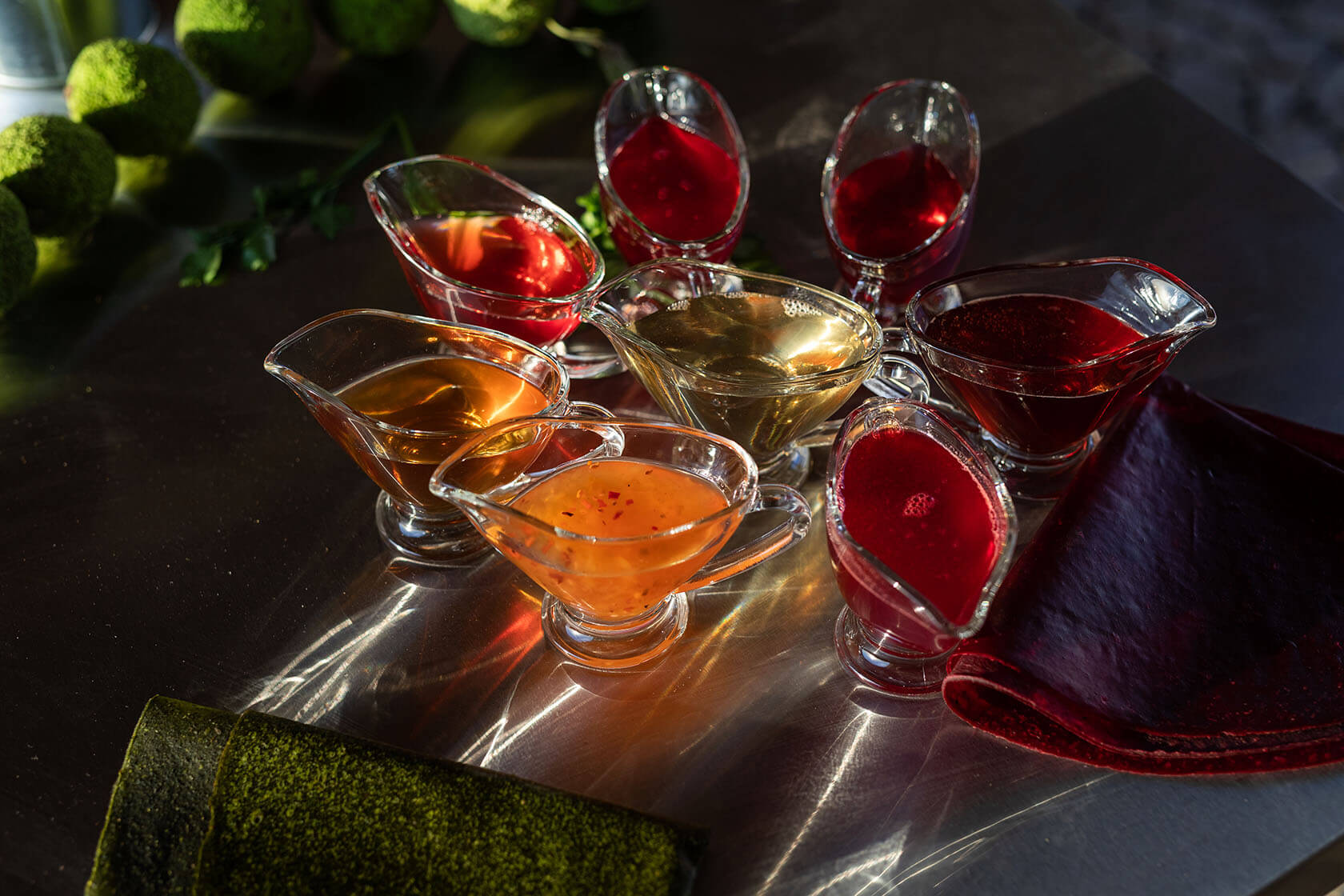
Photo by Ivan Erofeev
